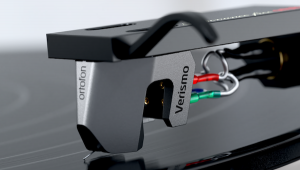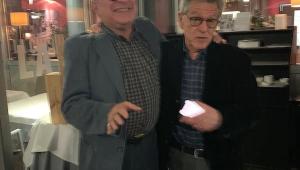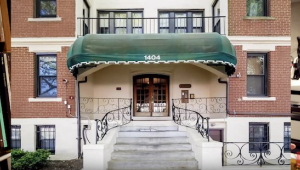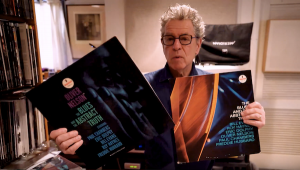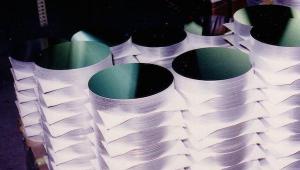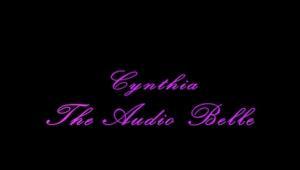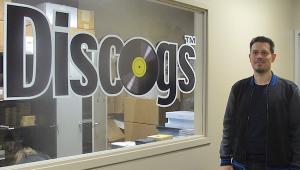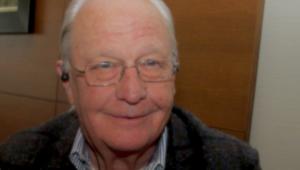Great piece! I love This Fire, and have been thrilled to see Paula live twice. I was a tad worried before reading this that Lo would sound digital, but I'm in now! On my way to her website...
Paula Cole Explores the Depths of Her Soul in Order to Behold a Better, More Intimate World on Vinyl With New 2LP Studio Set, Lo

Paula Cole didn’t want to wait any longer to take full control of her career — so the acclaimed, heart-on-her-sleeve singer/songwriter started her own 675 Records label a little over a decade ago, and she hasn’t looked back since. “I love that I get to be creatively free now that I’m making independent albums on our own label,” she admits. “Yeah, all the back-end work is a lot when you’re independent — but we will do all of it because it gives us full creative control.”
The latest fruit of Cole’s vinyl-centric labors is a new 2LP studio set, Lo, her 11th album that was released on 675 Records just a few days back, on March 1, 2024. Produced by Cole herself, Lo teems with the caliber of songwriting depth and arrangement breadth she’s long been known for as an artist. Here are but a few examples: the collective sense of time, space, and worldly wonders on the opening track on Side A, “Follow the Moon” (plus, you’ll hear Ross Gallagher’s fingers moving up and down the strings of his upright bass during a number of key moments); the trust-fall letting-go nature of “Invisible Armor” (Side A, Track 4, where her sustained piano riff that carries through the fadeout is simply sublime); and the full unleashing of her inner caterwaul during the back half of “Wildflower” (Side C, Track 2), a six-minute tour de force and of individualistic strength that defines Lo’s very soul. More specifically, the long-held sustain of her preternatural wail that runs from 4:57 to 5:18 in “Wildflower” sends chills down my spine every time I cue it up. “That was such a magical moment in the studio,” Cole concurs. “Of all the interviews I’ve been doing for Lo, you’re the first one to pick up on that — so, thank you. I love that moment!” (Me too. Check it out for yourself below.)
The Lo 2LP stats are these. Cut entirely live in the studio, Lo was recorded and mixed by Michael Piersante (Robert Plant I Alison Krauss), mastered by Gavin Lurssen at Lurssen Mastering, and the vinyl was pressed by Precision Record Pressing in Toronto. Though digital files were indeed used in this process, I can personally attest the analog-centric nature of Cole’s music fully lives and breathes across all three sides of this 2LP set, which rates a 9 for Sound and a 9 for Music. (Side D contains only an etching.) The SRP for Lo is $45 (signed versions, which run $55, are currently sold out, but they tend to be restocked when time permits), and the album can be ordered directly from Cole’s official site right here.
Cole is a big fan of tape, and she’s contemplating going back to it for whatever she records next. “That’s a beautiful thought. We have not gone back to tape in a while, but I think it’s high time,” she agrees. Incidentally, the love of tape runs deep within the Cole family. “Actually, my stepson Faolán, he’s studying engineering and production at Berklee College of Music, in their MP&E program — their music production and engineering program — and he loves tape,” she confirms. “He loves the old analog style of recording and we’ve geeked out on it a lot together, as he found the closets with my 2-inch tapes. I realized seeing his Gen Z love for tape really is inspiring — and touching — and it makes me want to work on tape again. So maybe for the next project, I’ll do just that.” Lo and behold, we here at AP wholly support that idea.
In a recent Zoom interview, Cole, 55, and I discussed why listening to vinyl is a “full body” experience, why Lo had no choice but to be spread across three LP sides, and why she feels passionate about reclaiming the rights to re-release her first three albums on her own label. Release me / This stoic oak tree / Is coming down / Down / Down. . .

Mike Mettler: You had Lo pressed at Precision in Toronto, just like you’ve done with previous records of yours such as 7, which you reissued on vinyl in 2022. Do I have that right?
Paula Cole: Yes. I found Precision when we did a licensing deal with BMG, and they introduced me to Precision. I’ve loved working with them. They’re wonderful people, and they care about audio quality. They’re passionate about it.
I’ve been dealing with [account manager] Chris Pappas at Precision directly, and I’m doing all my albums with him now, once I had a relationship with that company and found I loved it so much. Also, their turnaround time — they care. If they know if I have a deadline, they’ll work with me.
The first thing I work on, as a little label, is getting my vinyl masters and artwork together because the lead time is so long, and Precision is wonderful about that. At the 7-year anniversary of 7 [in 2022], I went to Precision and said, “Let’s make something delicious.” [The symmetrical result being a beautiful, opaque-white 1LP gatefold reissue of an album that was initially released on CD in April 2015, celebrating the concept of a 7-year life cycle.]
I mean, I’m always going to do vinyl. That’s just something I do now. I’m committed to it. I love it! I love listening to it. It’s such a different experience. It really feels like a full body experience, with the sine waves. They hit your body. It’s physical, and the low end is superior — and I love it. There’s something about it that brings me in, and then I’m looking at the art and I’m reading the lyrics. I’m contemplating it. I’m experiencing it in the moment. It’s not sine waves cut up and re-digitized, and then it becomes wallpaper to whatever you’re doing in the moment — which, so often, is what our streaming does. That’s just wallpaper — subconscious information. Vinyl — it’s participatory. I’m in it. I’m in the sine wave.
Mettler: Yeah, I totally get that. I call it appointment listening. I don’t do anything else whenever an LP is spinning, and I get more out of it. I just feel like I’m more connected with what I’m listening to that way.
Cole: Amen! Yes.
Mettler: You know, you could name an album after that — but, well, that’s a discussion for another time. (both laugh) [Cole’s third studio album on Imago/Warner Bros., Amen was released in September 1999 and credited to Paula Cole Band. Amen has not yet appeared on vinyl.]
Mettler: Anyway, moving on! Did you know early on that Lowould have to fit on three sides, and not two?
Cole: I didn’t know how much information was going to fit on the sides until we were mastering, and [engineer] Jeff Powell said, “Mmm, you know, we could squeeze it on 1LP, but then, with the sound quality, you’d lose the fatness, the richness. If you’re pushing those waves into thinner grooves, you start getting too much high-end needle information, and then it ruins some of the sound quality.” So I was like, “No way! I’m gonna spread that baby out onto a double LP,” you know? (chuckles)
Mettler: Did you have any notes at the mastering stage for Lo prior to the sign off? Were you like, “Hey, I need either my vocal up, or back. The piano needs to be here. Jay [Bellerose, her longtime drummer] needs to be like this.” Do you get that specific about, “Hey, I need this to happen” when you’re at that stage?
Cole: There are times that I have been extremely involved in the mastering where I would attend the mastering sessions — and I prefer to do that — but since I’m living in New England, that makes me a little isolated. So, it depends on who I’m working with as an engineer because, often, the engineer is fiercely loyal to their mastering engineer, and they feel the mastering engineer is an extension of their sound.
And on Lo, I wanted Jay to work with Michael Piersante. Jay, he’s so loyal to Michael, and he feels that Michael Piersante is an extension of his drum sound — and you can hear that all over the Robert Plant I Alison Krauss records he’s done. [Bellerose has drummed on and Piersante has recorded and mixed both rightly acclaimed Plant I Krauss collaborative albums — a) October 2007’s Raising Sand and b) November 2021’s Raise the Roof.]

Mettler: Talk about Atmosphere 101 — I feel like we can hear that with what Jay does on the drums at the very beginning of “take it, take it, take it” (Side A, Track 3; listen here), wouldn’t you agree?
Cole: Yes — “take it, take it, take it” is this very soulful groove. It’s like Marvin Gaye meets John Bonham meets bohemian hip-hop influences in its production, and there’s this quirky gating on the drum sounds.
And what Mike Piersante did with the Rhodes part, where I’m holding pads with my right hand and my left hand is playing the bass line, and what my bass player [Ross Gallagher] did and what my left hand is doing — they’re married so beautifully by Mike. I love that track. It’s such a vibey track. It’s very sensuous. Just the sound of it is — it’s hard to quantify. It’s hard to describe. It’s just so soulful and quirky and beautiful.
I wanted Jay to work with Michael from Day 1 of engineering and recording the album to the end — to the mastering stage. So, we recorded in L.A. at The Village in the Studio B that Fleetwood Mac built after the success of [February 1977’s] Rumours [where they ultimately recorded October 1979’s Tusk], and it’s a beautiful-sounding wooden room. The whole recording was very live, and it was very interactional. Jay and I always make sure that we have sight lines to each other. He’s the bottom of the music and I’m the top. We’ve been playing together since I was 19, and I’m 55 now! (laughs) We’re like right and left hands musically. We are soulmates musically.
Cole: And because we used Mike Piersante and we recorded at his favorite studio, he wanted to work with his mastering engineer — and that’s Gavin Lurssen, at Lurssen Mastering. He’s good people. I’d been working mostly with Bob Ludwig my whole career and I’m very loyal to him, so it was very hard for me not to work with Bob. I love Bob so much! Because he’s in New England, I would drive up [to his studio], and I would attend those mastering sessions. We both have a profound love for jazz too, because he actually studied trumpet alongside Tony Levin and Steve Gadd, who were his classmates.
Mettler: Oh yes. And you’ve worked a lot with Tony over the years, of course — both onstage and in the studio. [Levin was on bass when Cole toured as a featured vocalist with Peter Gabriel on his 1993-94 Secret World Tour, and Levin also appeared on two of her albums, This Fire and Amen.]
Cole: Tony Levin is my heart! (exclaims) Whoo! And he’s such a beautiful gentleman too.

Mettler: Tony Levin is indeed a true gentleman, through and through. I’m glad you’ve been able to take a certain level of control with your recording career by starting your own label. Tell me a little bit about that, because you’ve been a producer as early as This Fire [her above-noted second album, which was released in October 1996 on Imago/Warner Bros.]. At some point, you also transitioned into the idea of, “I have to put my own records out myself.” How did you get to do that? Tell me the process.
Cole: Yeah. I mean, there’s two stories in that. One is arriving at the decision that I just loved producing, and that’s one story. (chuckles) And the other story is taking more control over the process — and I guess they’re intertwined. I just didn’t enjoy being treated like a dumb little artist, I guess. (laughs heartily) That was kind of infantilizing me, and usually it was done by older men in the business. They just expect you needed that — and I didn’t need that.
I mean, I was a competent musician and I had ideas, and I learned from the greats. I was learning from amazing musicians all around me in my band. Back in the day, people were trying to get me to replace Jay [Bellerose] with the trendy new drummer, or whatever — like, no! I stuck my neck out for my people, and I’m so proud of that.
And I was learning from great engineers like Kevin Killen, who mixed and engineered So by Peter Gabriel [released on Geffen in May 1986; he also produced Cole’s July 1994 Imago debut, Harbinger], and I worked with Hugh Padgham [on a still unreleased project he produced with/for her in 2001].These are incredible gentlemen that I’ve learned so much from, and I learned I just wanted my voice to be as intact — meaning, my ideas to be as intact from the mind, from the voice, to tape — to go straight to tape! (laughs) And it’s been fantastic for me to be just the producer, and how fun it feels to be in the sandbox creating this music.

Mettler: Getting back to that primal scream section of “Wildflower” (Side C, Track 2; again, listen here), how did you get into that headspace? I mean, that had to affect you on the human side, just to get yourself there.
Cole: Oh. My. God. That is primal scream therapy — on vinyl! (laughs) Yeah, it seriously was. I remember thinking, “I can’t do this song too many times” — and that’s something I always aim for, to try to get it in one to three takes. Try to get it fresh.
I love Miles Davis for that. He instilled that ethos in me: “Try to get it while it’s fresh.” Otherwise, it’s just like making shoes or something, right? You’re just doing it and doing it and doing it. It loses the passion. I find that, in the early takes, the songs were new and the band was new with the songs. So, we’re all listening, almost like human animals, listening with such depth in the moment to everything that everybody’s doing. And my piano part’s really zen. It just hangs out and the story builds, and the chorus builds. I told Jay, “I really, really, really want you to fill here, and really go for it here” — and he finally f---ing did it! (laughs)
I don’t know what happened. I think — you know what I remember? My voice started to go. It started to crack, and I thought I was losing my voice. Part of me was thinking, “Oh sh--! I’m losing my note. I’m losing my voice.” And then I’m like, “F--- it!” — and I go into the crack. Like Leonard Cohen says, “There is a crack, a crack in everything / That’s how the light comes in.” [One of Cohen’s more infamous lyrics, these lines come from “Anthem,” which can be found on his November 1992 LP on Columbia, The Future.]
So, I went into the crack, and it turned into this Janis Joplin howl, this John Lennon primal scream therapy and music kind of situation, and the band was like, “Oh My God!” (smiles) It was such a beautiful mutual moment of explosion. It was synchronicity. Oh, I love that one!

Mettler: It’s my favorite song on Lo, hands down. Now, I want to get back to talking about your ’90s masters. I see that the Slow Down Sounds label actually did a reissue of This Fire on vinyl recently [in 2023]. Is that right?
Cole: Yep, yeah. Isn’t it crazy? I didn’t even know about that until — you know, the small record label that he is, he cares, so he contacted me. But meanwhile, the original label never even gave me the courtesy to say, “Hey, we just did another deal, and it’s going to come out. You might want to know about it so you can mention it, or whatever.”
And I have to say, the gent who put it out on his label, he was very kind, and he’s understanding but, damn — like, I wish I had known! I wish I knew I could have tried to strike a deal myself.
What a powerful learning lesson that period in the ’90s was, when I didn’t have full creative control of my masters. And I’m definitely an artist who talks about it. It’s painful. A lot of us were signed to bad deals in the ’90s. I find the conversation is not as alive as it should be. Like, “Come on, folks — let’s talk about those bad deals. We need to collectively get through this together.”
Mettler: If you don’t mind me asking, how many of those early records of yours do you not have under your umbrella — is it the first three?
Cole: Just those three. The first three, yeah. [Those aforementioned three albums would be 1) July 1994’s Harbinger, 2) October 1996’s This Fire, and 3) September 1999’s Amen, all released on Imago/Warner Bros.] I’m a small label, and I can’t even talk about it because — oh, it’s so depressing! But yeah, that’s something that I’ve got to. . . (slight pause) I’ve got to redeem my soul. That weighs so heavy on me because that’s my work. I want to die leaving beautiful work, and our copyrights live on 50 years postmortem. I want my work to go to my daughter, my kids, and I don’t have control over those masters — and it’s something that weighs so heavy on my heart, and I want to rectify that. Oh! I want it so bad!
,
Mettler: Well, hopefully the rights pendulum swings back in your favor, and you can release all three of those albums on vinyl on 675 Records at some point. And since we’re talking about the concept of 50 years, to wrap things up, I want to now send us 50 years into the future in a different context, so that we are now in 2074. And, as I like to say, unless there’s some weird science going on, we’re probably not physically on the planet at that point. Some of us might be, I don’t know (both laugh), but if somebody types your name, “Paula Cole,” into whatever their listening device is in 2074, what do you want them to get out of that listening experience?
Cole: Well, I’d be 106, so I probably won’t be around! (laughs) But I do hope the music lives on. I do hope that my great grandchildren will think of me — I do hope that.
I think it’s music that makes you feel — and I love art that makes you feel. Yes, I can be witty. I can put on that hat of wit — but that’s not what moves me. I like art that moves me, and makes me feel. So, whatever it is, I just hope it makes people feel — and in so doing, maybe it makes their troubles a little lighter and it’s like some therapy, because that’s what it’s been for me.

PAULA COLE
LO
2LP (675 Records)
Side A
1. Follow The Moon
2. The Replacements & Dinosaur Jr.
3. take it, take it, take it
4. Invisible Armor
Side B
1. Monday, Tuesday, Wednesday
2. Green Eyes Crying
3. Calling All Saviors
4. Golden Apples Of The Sun
Side C
1. Letter From A Quarry Miner
2. Wildflower
3. Flying Home
Side D
Note: etching only, no music

- Log in or register to post comments




